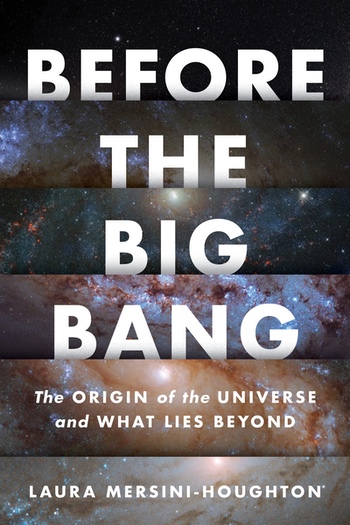Review: Before The Big Bangby Jeff Foust
|
| “The spontaneous formation of a brain in empty space stands a much better chance (statistically) of occurring than the creation of our universe through cosmic inflation,” she writes. |
Those are questions that Laura Mersini-Houghton, a theoretical physicist and cosmologist at the University of North Carolina, has been studying throughout her career. In Before The Big Bang, she discusses one potential solution to those questions, a topic she pioneered and is now gaining traction in the broader physics field: that out universe is part of a much larger multiverse.
Mersini-Houghton was motivated to pursue this topic because of a sticking point in the widely accepted model of cosmic inflation. While inflation explains the initial expansion of the universe after the Big Bang, “the infant universe must have been a remarkably unusual state of exceptional order” for it to turn out in this way, she writes. How unusual? “The spontaneous formation of a brain in empty space stands a much better chance (statistically) of occurring than the creation of our universe through cosmic inflation.”
That seems like a problem to her, so she studied it for much of her career, even though the issue was at the outskirts of mainstream thought in cosmology and astrophysics. The solution that she and a few colleagues developed involved string theory, specially something called the string-theory landscape. That provides, she writes, “a vast collection of initial energies—of potential Big Bang energies—capable of jump-starting multiple universes.”
That led them down the path of the multiverse concept, including the realization that our particular set of initial conditions is actually favored: “there is absolutely nothing special or exclusive about our beginning.” That model does have some testable hypotheses, such as features in the cosmic microwave background that could be created by entanglement with other universes immediately after the Big Bang. The concept of a multiverse now has much broader acceptance, she notes, something that occurred even during the process of writing the book.
The concepts in Before The Big Bang can be difficult to grasp at times, from quantum entanglement to 11-dimension string theory (that’s true “even for seasoned physicists,” she notes.) She avoids equations and mathematics to make it a little less challenging. She also weaves in anecdotes from her life, particularly growing up in Albania when the country was a repressive, isolated Communist regime, which shaped her career (“in light of my childhood experiences in Albania, the decision to research the creation of the universe didn’t feel like a particularly courageous act,” she writes of her decision to pursue that particular field.) The book is an enlightening read about the formation of our universe and the mysteries that still remain about how we got here.
Note: we are using a new commenting system, which may require you to create a new account.
